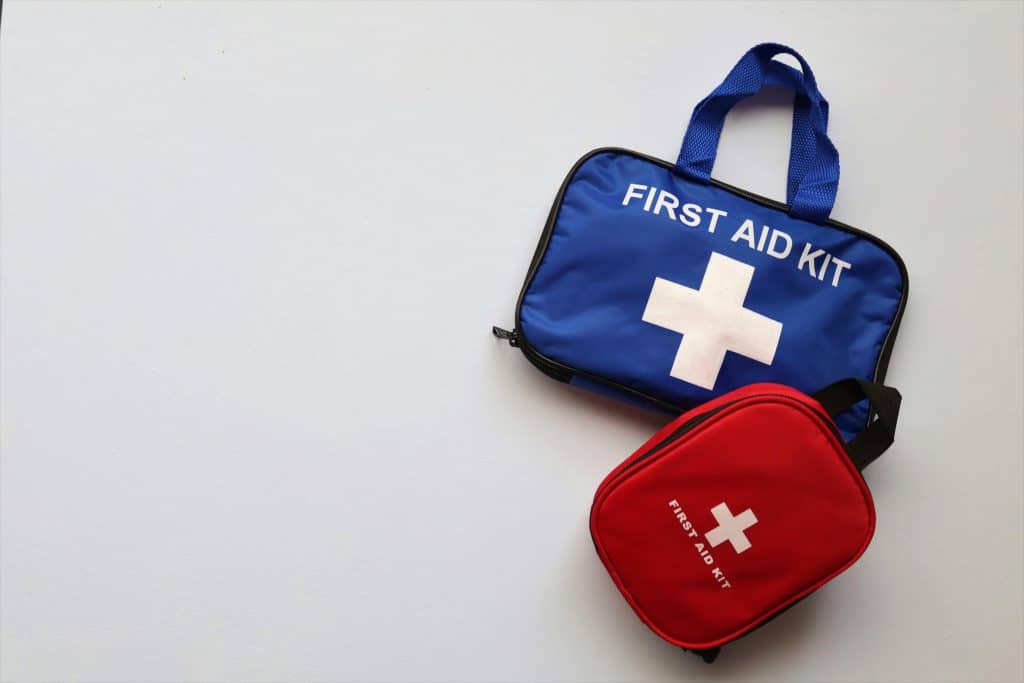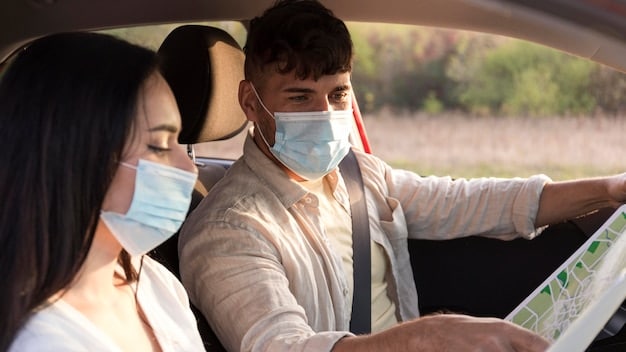While international travel often prompts careful health planning, domestic travel within the United States deserves equal attention to medical precautions and safety strategies. From cross-country road trips to flights between states, American travelers face varied health considerations influenced by regional differences in climate, geography, altitude, and available healthcare resources. Thoughtful preparation can prevent emergencies and ensure a smooth journey through America’s diverse landscapes.
Pre-Travel Health Assessment
Before embarking on domestic travel, schedule a check-up with your primary care physician, particularly if you have chronic health conditions or plan physically demanding activities. This assessment provides an opportunity to ensure your condition is stable for travel and that you have sufficient medication and management strategies. Physicians can offer personalized advice based on your specific health needs and travel plans.
For travelers with significant medical conditions, consider obtaining a medical alert bracelet or carrying a concise medical history summary. This documentation can prove invaluable should you require emergency care in an unfamiliar location where healthcare providers lack access to your medical records.
Insurance Considerations
Many Americans assume their health insurance provides adequate coverage throughout the country, but this assumption merits verification. According to a hotel injury lawyer Morris law, “Travelers often discover coverage gaps only after accidents or medical emergencies occur during their trips. Contact your insurance provider to understand coverage limitations across state lines, particularly regarding in-network providers and emergency services. Some plans offer minimal out-of-state coverage beyond emergency stabilization, potentially resulting in unexpected expenses”.
If your existing coverage has significant gaps, consider supplemental travel medical insurance for your journey. While less common for domestic travel than international trips, these policies can provide peace of mind, especially for extended vacations or visits to remote areas.
Medication Management
Proper medication management represents a critical aspect of travel preparation. Pack all prescription medications in their original containers with clearly visible labels, accompanied by copies of prescriptions. These precautions facilitate airport security screening and provide crucial information should you require emergency refills.
For longer trips, ensure you have sufficient medication supply, ideally with a small surplus for unexpected delays. Many insurance companies allow vacation overrides for early prescription refills with advance notice. If traveling across time zones, consult your healthcare provider about appropriate timing adjustments for medication schedules.
Create a backup plan for medication access in case of loss or damage. Research pharmacy chains with locations throughout your travel route and understand procedures for emergency prescription transfers or refills. Some telehealth services can also assist with short-term prescriptions when necessary.
Regional Health Considerations
The United States encompasses diverse environments, each presenting unique health considerations. Desert regions in the Southwest require vigilance against dehydration and heat-related illnesses, while high-altitude destinations in states like Colorado or Utah necessitate awareness of altitude sickness symptoms and appropriate acclimatization periods.
Rural areas may have limited medical facilities and longer emergency response times, warranting additional preparation. Before traveling to remote locations, research the nearest medical facilities and their capabilities. Some wilderness areas might require satellite phones or emergency beacons for communication in areas without cellular coverage.
Seasonal factors also influence health risks. Summer travel across much of the country brings considerations of heat safety and insect-borne diseases like Lyme disease or West Nile virus. Winter journeys through northern states require preparation for cold weather emergencies and awareness of how weather conditions might impact access to medical care.
Creating a Comprehensive Travel Health Kit

A well-stocked health kit serves as your first resource for addressing minor medical issues while traveling. Beyond prescription medications, include over-the-counter remedies for common travel ailments like motion sickness, pain, allergic reactions, and digestive disturbances.
Basic first aid supplies should include adhesive bandages in various sizes, antiseptic wipes, antibiotic ointment, hydrocortisone cream, and materials for treating minor wounds. Consider including instant cold packs, elastic bandages, and blister treatment supplies if your itinerary involves significant physical activity.
Customize your kit based on your destination and planned activities. Beach vacations might necessitate enhanced sun protection and jellyfish sting treatments, while hiking trips warrant supplies like tick removal tools and treatments for plant-induced skin irritations.
Food and Water Safety
Though food and water safety concerns seem less pressing within the United States than during international travel, vigilance remains important. Foodborne illness can occur anywhere, particularly when consuming undercooked foods or items from establishments with questionable sanitation practices.
When road-tripping through rural areas or visiting remote locations, water quality may vary. Consider a portable water filter or purification system for backcountry adventures. Research any local water advisories at your destination, as some regions experience periodic contamination issues requiring special precautions.
Mental Health Considerations

Travel disrupts routines and sometimes creates stressful situations that can impact mental wellbeing. For those managing mental health conditions, maintain treatment regimens while traveling and develop strategies for addressing travel-related stressors. Consider downloading mental health support applications or researching telehealth options that allow consultation with mental health providers regardless of location.
Even travelers without diagnosed conditions benefit from self-care practices during journeys. Prioritize adequate sleep, maintain reasonable nutrition habits, and incorporate stress-reduction techniques like meditation or brief exercise sessions into your travel schedule.
Emergency Preparedness
Despite careful planning, medical emergencies sometimes occur. Program emergency contact information into your phone, including contacts labeled “ICE” (In Case of Emergency) that first responders can identify quickly. Familiarize yourself with accessing emergency services in your destination, recognizing that rural areas might have different protocols than urban centers.
For travelers with children, research pediatric-capable emergency facilities along your route. Not all emergency departments maintain equal capabilities for treating children, particularly those requiring specialized care.
Post-Travel Health Monitoring
After returning home, monitor your health for emerging symptoms that might indicate travel-related illness. While domestic travel presents fewer exotic disease risks than international journeys, issues like respiratory infections or gastrointestinal problems can develop after exposure during travel. Should concerning symptoms arise, inform healthcare providers about your recent travels to facilitate appropriate diagnosis and treatment.
By applying these medical precautions and safety strategies to domestic travel, Americans can enjoy exploring their diverse country with greater confidence and security. Though travel within familiar borders might seem inherently safer than international adventures, thoughtful preparation remains the foundation of healthy, trouble-free journeys across the United States.








